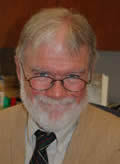
In addition to its being the 10th anniversary of that terrible day, this September 11th is, according to the Catholic liturgical calendar, the 24th Sunday in Ordinary Time. The Mass readings for the day are from the Book of Sirach (“Wrath and anger are hateful things, yet the sinner hugs them tight. . . . If one who is but flesh cherishes wrath, who will forgive his sins? Remember your last days, set enmity aside . . .”) and from Saint Matthew’s Gospel (“Peter approached Jesus and asked him, ‘Lord, if my brother sins against me, how often must I forgive? As many as seven times?’ Jesus answered, ‘I say to you, not seven times but seventy-seven times.’”)
It’s still instantly accessible for most of us, the memory of that paradoxically fine and sunlit morning 10 years ago, when all hell broke loose from a pristine cobalt blue sky, and it began to become so dreadfully clear that what we saw happening on TV was not an accident, not an accident at all, but the careful work of malevolent human will.
Someone desired all of this — desired the incineration of travelers and office workers, desired the horrifying plunges of doomed victims desperate to escape hundred-story flames, desired the terror of a city, a country and a world. That afternoon, here at Notre Dame, some 7,000 of us gathered in bewilderment for Mass on the South Quad. What else could we do?
Before very long, a sort of ancillary horror began to insinuate itself: We learned that the perpetrators were devout men. They prayed before murdering the innocent and annihilating themselves. They worshiped God and believed this globally televised and advertently spectacular slaughter enjoyed divine sponsorship. For anyone who believes that God is the father of Jesus, this is blasphemy, pure and simple.
But we who do so believe encounter something nearly as scandalous in the scriptures to be proffered for the Mass on this anniversary. Obedience to the inexorable command to forgive is as preposterous in its own way as the zeal of the suicide bomber. Whatever grim satisfaction may have accompanied my learning that Osama Bin Laden had been killed, I am forbidden to forget that he is as beloved of God as I am. C.S. Lewis may have had something like this in mind when he described the Incarnation as “an irreverent doctrine” and Christianity as “an incurably irreverent religion.” It’s a hard wisdom to bear.
And it is a wisdom every bit as inflammatory, every bit as stupefying, every bit as disruptive as any act of terrorism. Some 15 years ago, for instance, Father Christian de Chergé and six other Trappist monks of Our Lady of Atlas monastery in Tibhirine, Algeria, were seized and slaughtered by a jihadist gang. Father Christian had left a sealed letter with his mother in France to be opened in the event of his death.
It is an astonishing document, which begins, “If it should happen one day — and it could be today — that I become a victim of the terrorism which now seems ready to encompass all the foreigners living in Algeria, I would like my community, my Church, my family, to remember that my life was given to God and to this country. I ask them to accept that the One Master of all life was not a stranger to this brutal departure. I ask them to pray for me: for how could I be found worthy of such an offering? I ask them to be able to associate such a death with the many other deaths that were just as violent, but forgotten through indifference and anonymity.”
Father Christian’s letter goes on with unflinching prescience of his looming martyrdom and concludes with an address to the murderer he had not yet met: “And you also, the friend of my final moment, who would not be aware of what you were doing. Yes, for you also I wish this ‘thank you’ — and this adieu — to commend you to the God whose face I see in yours. And may we find each other, happy ‘good thieves,’ in Paradise, if it pleases God, the Father of us both. Amen.”
Seventy-seven times indeed. Christian de Chergé, pray for us.
Michael Garvey is Notre Dame’s assistant director of public information and communication. Email him at garvey.2@nd.edu.